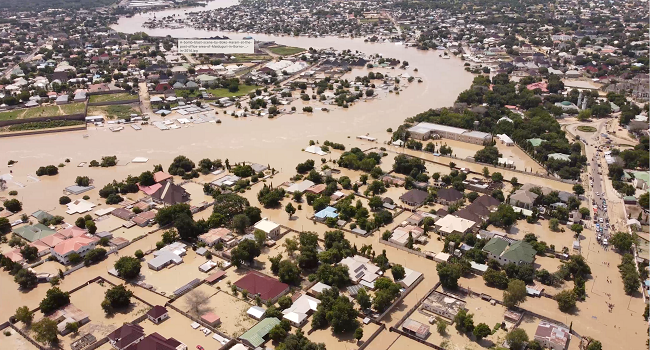The United Nations’ Central Emergency Response Fund (CERF) has announced the release of US$5 million to enhance flood relief efforts and address urgent needs in three of Nigeria’s most severely flood-affected states: Borno and Bauchi in the North-East, and Sokoto in the North-West.
The announcement was made in a statement released by CERF on Wednesday, following the worsening effects of flooding on people’s lives, livelihoods, and food security during the peak of the rainy season in Nigeria. According to Nigeria’s National Emergency Management Authority (NEMA), over 300 people have lost their lives, and at least 1.2 million people in 31 states have been affected. Thousands of hectares of cropland have also been destroyed ahead of harvests.
“Floods across Nigeria have created a crisis within a crisis,” said Mohamed Malick Fall, United Nations Resident and Humanitarian Coordinator in Nigeria. He noted that millions of people were already grappling with severe food insecurity due to economic hardships, and the floods have only worsened their plight.
CERF stated that the funds will enable humanitarian partners to assist 280,000 people in Borno, Bauchi, and Sokoto states with food, clean water, sanitation, and shelter. The funds will also be used to quickly mobilize healthcare resources, particularly to prevent the spread of waterborne diseases like cholera.
The response will also include multipurpose cash assistance (MPCA) and cash-for-work programs to help affected individuals earn a livelihood. Additionally, the funding will support protection services for women, girls, and people with disabilities, including resources for gender-based violence (GBV) services.
While welcoming the CERF allocation, Fall emphasized that the funds, alongside previous contributions from the Nigeria Humanitarian Fund (NHF), are insufficient to meet the scale of the crisis. He called for immediate mobilization of additional resources from donors, development partners, and the private sector to support the ongoing emergency response and recovery efforts.


